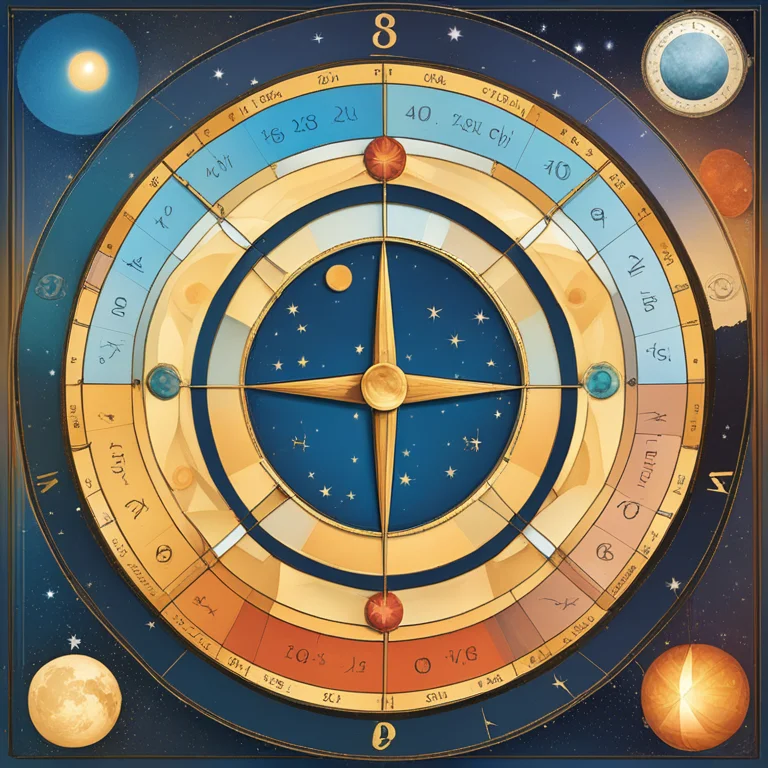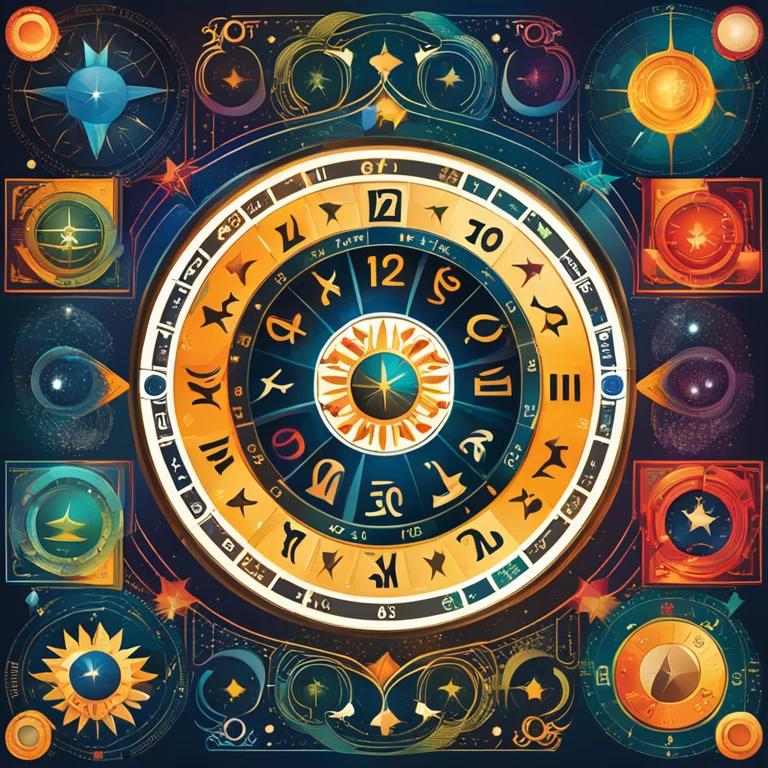
The Zodiac Keys: Insightful Positions & Influences
Delve into the significance of zodiac placements and their impact on personality, life paths, and compatibility in astrological practices.
article by Priya Deshmukh
Zodiac Basics – The Celestial Blueprint
In astrology, the zodiac is more than just a wheel of twelve signs; it is a celestial blueprint of human experiences. Each sign, represented by a constellation, is tied to specific energies and traits. A birth chart, which maps out the positions of the sun, moon, and planets at the moment of birth, provides a profound look into an individual's character. While the sun sign reveals one's core identity, the influence of the moon governs emotions, and the placement of the planets further refines the intricacies of one's persona.

Ascendant and Descendant Axes – Windows to the World
Astrological insights do not stop at the sun, moon, and planets. The Ascendant, or the rising sign, sheds light on the approach to new situations and life's first impressions. Opposite, the Descendant relates to partnerships and the qualities we seek in others. These axes form the primary foundation of a natal chart, representing personal and interpersonal dynamics, guiding individuals on their journeys to self-discovery and relational harmony as we step into 2024 and beyond.

Moon Sign Intuition – Embracing Inner Flux
The moon's placement in your birth chart holds the key to understanding emotional responses and subconscious leanings. It shapes your instincts, habits, and the fluctuating moods that cradle your soul. Tapping into the moon's energies allows for a deeper connection with the ebb and flow of personal tides, cultivating emotional intelligence and empathy necessary for growth in the rapidly evolving world.

Mercantile Mercury – Communication and Intellect
Mercury governs communication, logic, and travel, delineating how thoughts are processed and expressed. In 2024, as Mercury dances through the zodiac, its influence will be felt on both personal and collective levels. Understanding Mercury's placement offers valuable insights into learning styles and the exchange of ideas, equipping individuals with the tools to navigate the intricate dance of human interaction and technological advancements in the information age.

Venus and Mars – Balancing Desires and Actions
The placements of Venus and Mars in a natal chart illustrate the dual forces of attraction and assertion. Venus, the planet of love and beauty, indicates romantic preferences and artistic inclinations. In contrast, Mars drives ambition, energy, and the pursuit of goals. Together, these planets play a crucial role in relationships and career aspirations, with their positions in 2024 offering fresh perspectives on achieving balance and fulfillment.
Jupiter and Saturn – Growth Meets Discipline
Jupiter and Saturn serve as the balancing scales of expansion and restriction. Jupiter's placement in a birth chart inspires optimism, growth, and exploration, whereas Saturn enforces boundaries, structure, and responsibility. As these planetary giants move through their cycles in 2024, they offer a synchrony of risk-taking and caution, compelling individuals to find the sweet spot between dreaming big and laying down the groundwork for long-term success.
Uranus, Neptune, and Pluto – Transcendent Forces
The outer planets—Uranus, Neptune, and Pluto—are transformative forces in the zodiac, each with an orbit that makes their effects generational. Uranus disrupts for innovation, Neptune blurs boundaries to inspire, and Pluto signifies deep-seated changes. Their placements signify overarching themes that shape societal progresses and personal revolutions, setting the stage for profound evolutions in the coming years of the 21st century.
Published: 1/9/2024
Modified: 1/10/2024
More predictions
Come back here soon to learn more about yourself and your future


Can Astrology Predictions Be Altered?
Explore whether the predictions of astrology have the flexibility to change and if individuals can influence their astrological destinies.


The Ancient Origins of Astrology
An insightful journey into the ancient beginnings and origins of astrology as a cultural and astrological practice.


The Ancient Beginnings Of Astrology
Delve into the ancient beginnings of astrology and discover how this mystical practice captured the human imagination, from Babylonian times to the modern-day.